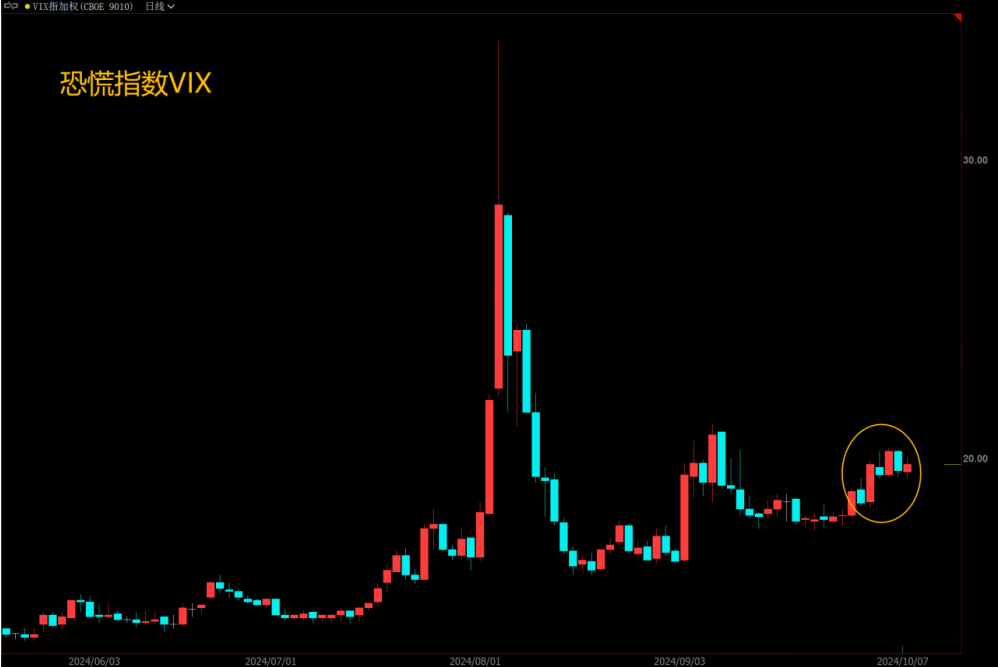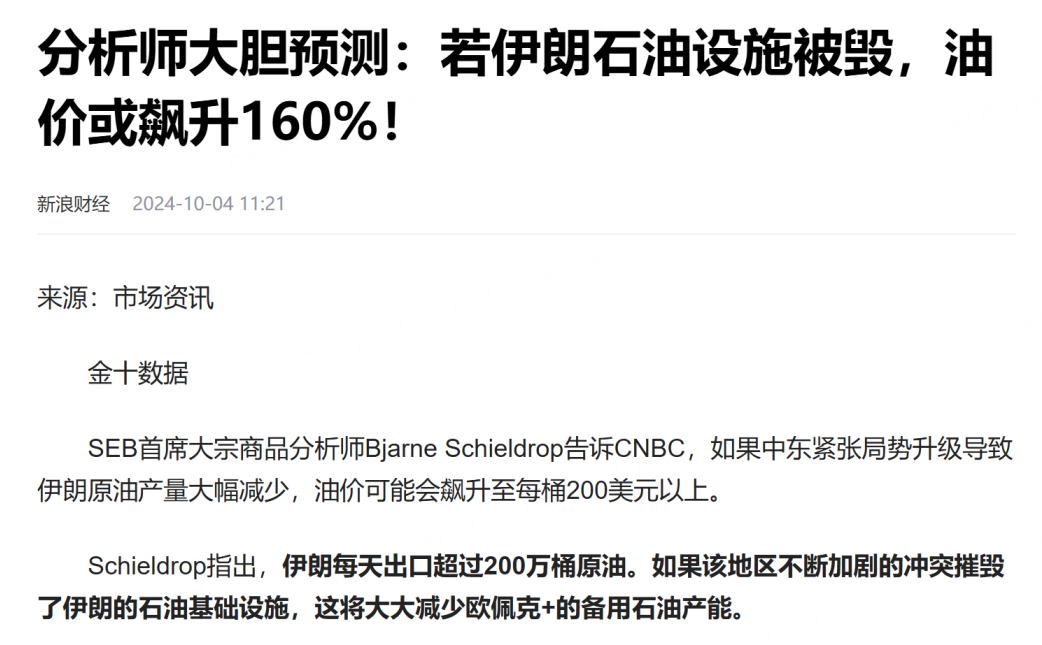During the National Day, the biggest thing in the external market was that Iran launched a large number of missile attacks on Israel on October 1 in response to a series of previous deaths of Iran's close leaders, which plunged the entire situation in the Middle East into a "cycle of revenge" and once again changed market expectations.
The focus is reversed. As everyone in China is still immersed in the joy of the skyrocketing A-shares, there is little attention to the news of the external market. Therefore, it is estimated that except for a few commodities closely related to the external market, other commodities are expected to continue to run after the holiday.
·
1. U.S. stocks fluctuate at high levels
Although the escalation of the conflict between Iran and Israel has no direct impact on the U.S. stock market, it is well known that the support of the United States for Israel makes it possible for Iran to target the United States and drag the United States into the water in the Israel-Iraq conflict, which is expected to be worried about the future of U.S. stocks.
The recent rise of the U.S. stock index VIX (panic index) shows the market's worried attitude. Although it is not believed that there will be big risks in U.S. stocks in the short term, the increase will definitely be limited, and everyone's expectations should not be too high.
With the blessing of China's series of stimulus policies, China Probability has become the "new favorite" of the US stock market. Due to the large range and highly targeted policies introduced by China (stock market, property market), it has aroused great attention and interest from funds.
The attractiveness of medium-and long-term A-share related assets will be better than that of the US stock market. Everyone should make appropriate asset allocation adjustments according to their own preferences.
2. The skyrocketing crude oil will push up future inflation
The escalation of the conflict between Israel and Iran has boosted short-term oil price sentiment. If Israel really attacks Iran's crude oil export infrastructure-Kharg Island (accounting for 90% of Iran's crude oil exports), it will inevitably have a medium-and long-term impact on oil prices. After all, it will take several months or even longer to rebuild the infrastructure. At this time, OPEC + needs to rapidly increase production to make up for the impact of short-term losses on market sentiment.
Iran's daily export volume reached 1.8 million barrels, and this part is exactly OPEC's current production cuts. If exports are damaged, this part of the export volume can be quickly compensated, and the fluctuation of oil prices will be generally controllable. If the compensation is not timely, the actual supply will exceed demand, and it will be hard to say the increase of oil prices at that time.
As soon as oil prices rise, inflation data will begin to slowly reflect the impact of this part in the next few months. Since the Federal Reserve has started an interest rate cut cycle, whether interest rate cuts will further increase CPI data will be an important investment context in the coming year. But in general, since inflation is coming, we just need to be prepared. Commodity investment is still a good means to fight inflation. Since the plan is not as fast as the change, the previous expectation that OPEC + 's increase in production may cause oil prices to collapse must be revised in the context of the escalation of the Israel-Iraq conflict. At present, we should pay close attention to the development of the situation before responding.
$NQ100 Index Main 2412 (NQmain) $$SP500 Index Main 2412 (ESmain) $$Dow Jones Index Main 2412 (YMmain) $$Gold Main 2412 (GCmain) $$WTI Crude Oil Main 2411 (CLmain) $



Comments